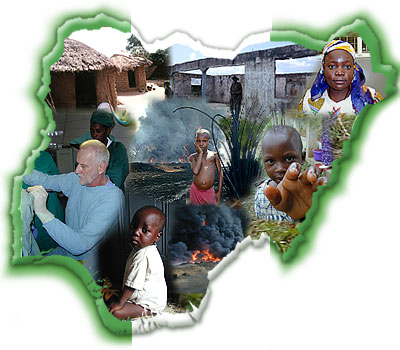Amidst President Bola Ahmed Tinubu’s attempts to steady the ship of a desperately troubled country, Nigerians are daily forced to chew the kola nuts of the macabre. An outbreak of cholera here, Boko Haram abducting a judge, his wife and orderly there, and deadly attacks by terrorists elsewhere, all tangle for space in a chilling chronicle of deaths.
In the face of these daily encounters with the macabre, Nigerians are forced to cling on to dear life every day. Just getting out of bed in Nigeria, has become an act of survival. By the time one navigates the hassles of the day and gets back home in one piece, one can be said to have heroically tallied many acts of survival. In this wise, Nigeria is a country of survivors.
Former CEO of Konga, Nick Imudia, was alleged to have taken his life on June 25, 2024, by jumping from the balcony of his Lekki apartment. Some members of his family have since denied the accounts surrounding his death. But there were other suicides in the last few days, one in Anambra and one in Delta.
His death made the rounds on social media, where Nigerians have reacted differently. In a country where suicide is still largely considered a taboo topic, this death, like many others has provoked questions about mental health at a time of unbearable pressure.
- For unity, Nigeria needs sincere leaders — President, Ohanaeze Ndigbo
- ‘It is sad that despite lives lost during Biafra, Nigeria is still divided’
Why would anyone want to take their life? Since self-preservation is man’s earliest and strongest instinct, what could make one bypass this instinct and harm oneself so irreparably and irreversibly?
In his seminal book, The Savage God, author Alvarez writes that: “The psychoanalytic theories of suicide, prove, perhaps, only what was already obvious: that the processes which lead a man to take his life are at least as complex as those by which he continues to live.” He further writes “Suicide is a closed world with its own irresistible logic.”
While there is no clear-cut singular answer as to why suicide is an option, mental illness supplies the premise for such an answer. By its unrivalled ability to conjure up the darkness within and spin all sorts of demons into such a stygian darkness, mental illness can disrupt life and turn it against itself.
Human beings are wired to seek a way out of uncomfortable situations. When people find themselves in situations, they deem undesirable, they devise their escape. Sometimes it works, sometimes it doesn’t. But there is mostly that attempt, even if it is merely idealistic. This instinct to escape dicey and potentially dangerous situations is a nod to self-preservation.
Suicide is like that, an attempt to escape the chokehold of life, albeit one that survives on deception and depression. Whenever people think that death by their hands can provide a hand out of the terrifying pit that life can sometimes be, suicide answers a call that often comes from suffocating darkness.
Indeed, Nigerians have been praised for their fortitude and resilience in the face of impossible challenges. In a 2018 piece titled, “Life-saving optimism: what the West Can Learn from Africa” for the Guardian UK, celebrated Nigerian author, Chigozie Obioma, who is on the verge of making the Booker Prize shortlist for the third time praised Nigerians for their resilience and called on the West to learn life-saving optimism from Africans. While that optimism remains, like Nigeria’s oil, it is fast drying up, confirming the fact that there is only so much a people can survive.
Death by suicide is not new in Nigeria. The suspicion is that it has always been underreported. Usually, it is not until another pathetic case makes it into the news that frantic conversations are had and dropped. They typically have a very short life span. What cannot be short-lived is the demand for better mental health for Nigerians who are going through a lot.
In a country where democracy has not exactly realised its promise and delivered dividends, there is a legion to induce anxiety, depression and other symptoms of mental illness. Insecurity and poverty stand out in this legion. When people fear for their lives, whether they are at home or outside, the toll over time is enormous. Furthermore, when the most trivial of bills serves as a reminder of scarcity and thriftiness, mental health suffers.
In the face of what is debilitating poverty, many people fall ill. Because resources are stretched, there is the temptation to attend to the traditional illnesses which are easily diagnosable and treatable. Most times, mental illness which results in a raft of physical symptoms is misdiagnosed or outrightly dismissed.
There is also the role superstition plays in mental illness, especially superstition caked in religion. With the tendency to ascribe everything to the supernatural and describe everything in esoteric terms, many often fail to see the wood for the trees when mental health is involved. But it is a problem that is ripe for recognition and action.
Each death by suicide serves as a rude awakening for a society where many taboos contribute to a fast-spreading mental brittleness.
It is important to educate people to speak out and seek the help they need to lay down the very heavy burdens they bear. In a world cloaked in silence, encouraging people to speak out can be the difference between life and death.
Ike Willie-Nwobu wrote via [email protected]

 Join Daily Trust WhatsApp Community For Quick Access To News and Happenings Around You.
Join Daily Trust WhatsApp Community For Quick Access To News and Happenings Around You.

